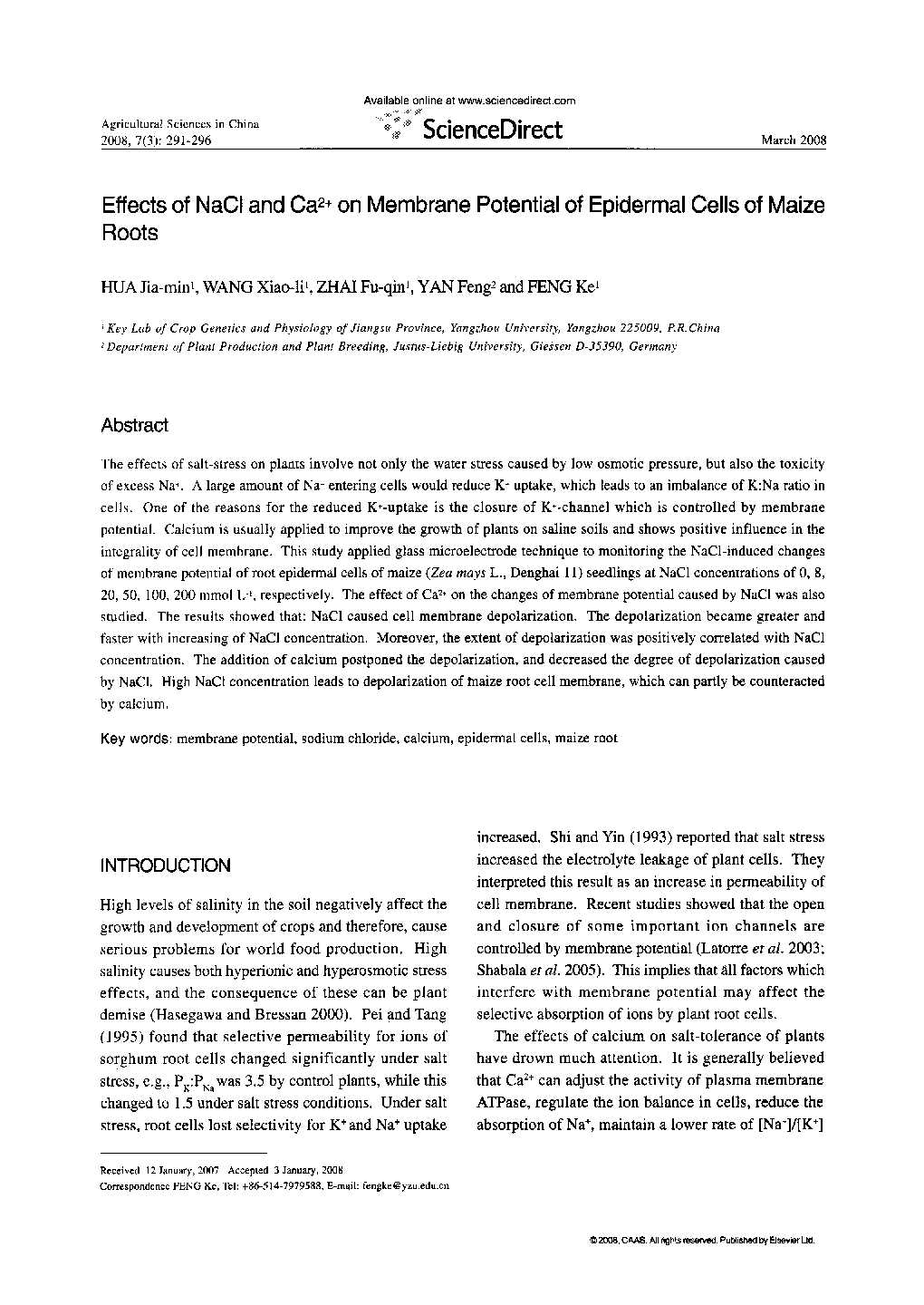| Article ID | Journal | Published Year | Pages | File Type |
|---|---|---|---|---|
| 4490602 | Agricultural Sciences in China | 2008 | 6 Pages |
The effects of salt-stress on plants involve not only the water stress caused by low osmotic pressure, but also the toxicity of excess Na+. A large amount of Na+ entering cells would reduce K+ uptake, which leads to an imbalance of K:Na ratio in cells. One of the reasons for the reduced K+-uptake is the closure of K+-channel which is controlled by membrane potential. Calcium is usually applied to improve the growth of plants on saline soils and shows positive influence in the integrality of cell membrane. This study applied glass microelectrode technique to monitoring the NaCl-induced changes of membrane potential of root epidermal cells of maize (Zea mays L., Denghai 11) seedlings at NaCl concentrations of 0, 8, 20, 50, 100, 200 mmol L−1, respectively. The effect of Ca2+ on the changes of membrane potential caused by NaCl was also studied. The results showed that: NaCl caused cell membrane depolarization. The depolarization became greater and faster with increasing of NaCl concentration. Moreover, the extent of depolarization was positively correlated with NaCl concentration. The addition of calcium postponed the depolarization, and decreased the degree of depolarization caused by NaCl. High NaCl concentration leads to depolarization of maize root cell membrane, which can partly be counteracted by calcium.
